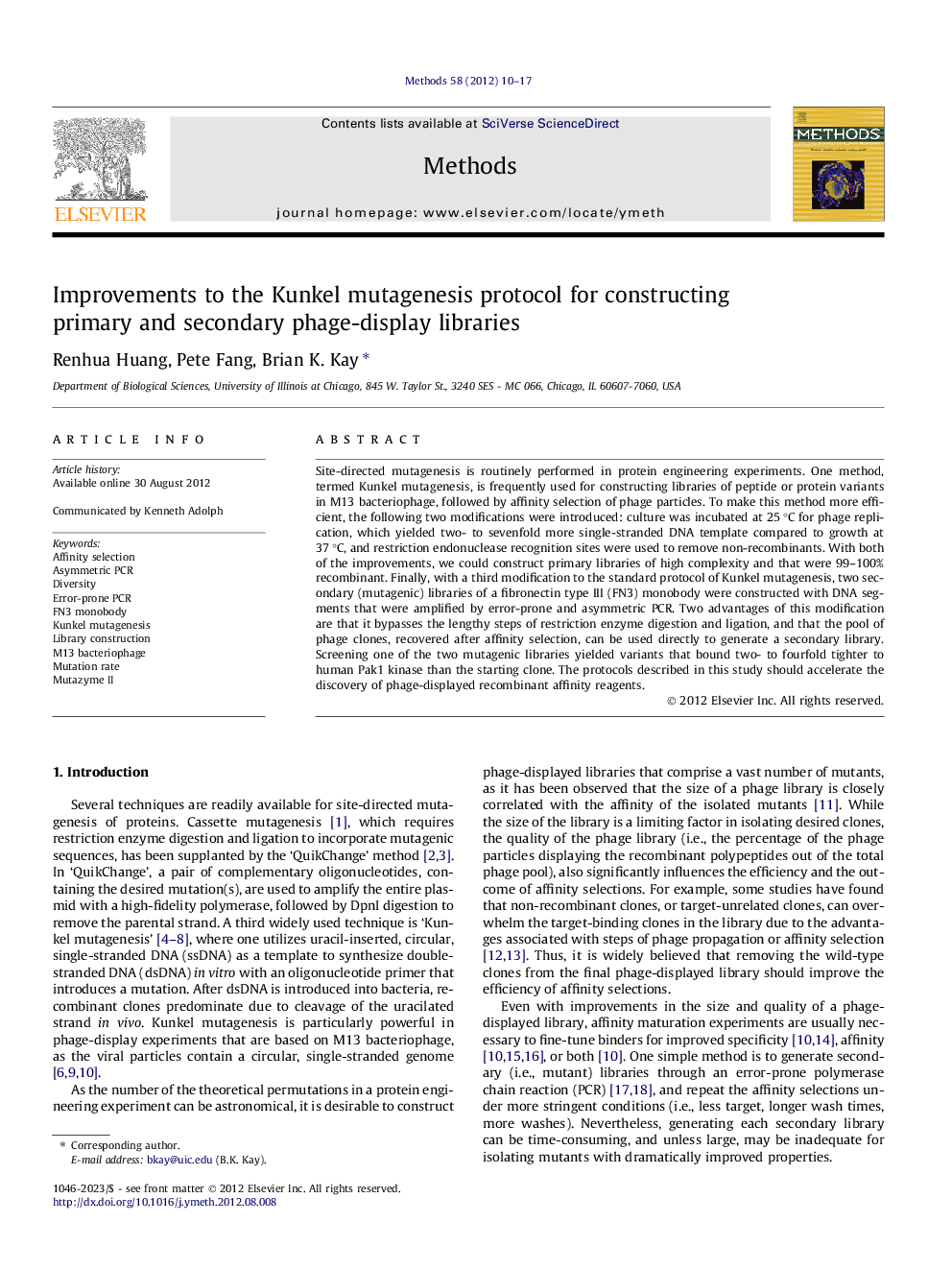| Article ID | Journal | Published Year | Pages | File Type |
|---|---|---|---|---|
| 10825986 | Methods | 2012 | 8 Pages |
Abstract
Site-directed mutagenesis is routinely performed in protein engineering experiments. One method, termed Kunkel mutagenesis, is frequently used for constructing libraries of peptide or protein variants in M13 bacteriophage, followed by affinity selection of phage particles. To make this method more efficient, the following two modifications were introduced: culture was incubated at 25 °C for phage replication, which yielded two- to sevenfold more single-stranded DNA template compared to growth at 37 °C, and restriction endonuclease recognition sites were used to remove non-recombinants. With both of the improvements, we could construct primary libraries of high complexity and that were 99-100% recombinant. Finally, with a third modification to the standard protocol of Kunkel mutagenesis, two secondary (mutagenic) libraries of a fibronectin type III (FN3) monobody were constructed with DNA segments that were amplified by error-prone and asymmetric PCR. Two advantages of this modification are that it bypasses the lengthy steps of restriction enzyme digestion and ligation, and that the pool of phage clones, recovered after affinity selection, can be used directly to generate a secondary library. Screening one of the two mutagenic libraries yielded variants that bound two- to fourfold tighter to human Pak1 kinase than the starting clone. The protocols described in this study should accelerate the discovery of phage-displayed recombinant affinity reagents.
Related Topics
Life Sciences
Biochemistry, Genetics and Molecular Biology
Biochemistry
Authors
Renhua Huang, Pete Fang, Brian K. Kay,
